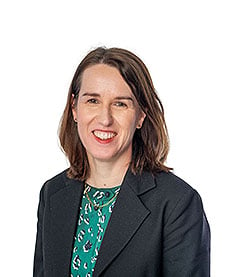-
Compliance and audit reviews
From mandates, best practice procedures or accreditations, to simply gaining peace of mind, our technical and industry experts have you covered.
-
External audit
Strengthen business and stakeholder confidence with professionally verified results and insights.
-
Financial reporting advisory
Deep expertise to help you navigate New Zealand’s constantly evolving regulatory environment.
-
Corporate tax
Identify tax issues, risks and opportunities in your organisation, and implement strategies to improve your bottom line.
-
Indirect tax
Stay on top of the indirect taxes that can impact your business at any given time.
-
Individual tax
Preparing today to help you invest in tomorrow.
-
Private business tax structuring
Find the best tax structure for your business.
-
Tax disputes
In a dispute with Inland Revenue or facing an audit? Don’t go it alone.
-
Research & development
R&D tax incentives are often underused and misunderstood – is your business maximising opportunities for making claims?
-
Management reporting
You’re doing well, but could you be doing even better? Discover the power of management reporting.
-
Financial reporting advisory
Deep expertise to help you navigate New Zealand’s constantly evolving regulatory environment.
-
Succession planning
When it comes to a business strategy that’s as important as succession planning, you can’t afford to leave things to chance.
-
Trust management
Fresh perspectives, practical solutions and flexible support for trusts and estate planning.
-
Forecasting and budgeting
Prepare for every likely situation with robust budgeting and forecasting models.
-
Outsourced accounting services
An extension of your team when you need us, so you can focus your time, energy and passion on your business.
-
Setting up in New Zealand
Looking to set up a business in New Zealand? You’ve come to the right place.
-
Policy reviews & development
Turn your risks into strengths with tailored policies that protect, guide and empower your business.
-
Performance improvement
Every business has untapped potential. Unlock yours.
-
Programme & project management
Successfully execute mission-critical changes to your organisation.
-
Strategy
Make a choice about your vision and purpose, where you will play and how you will win – now and into the future.
-
Risk
Manage risks with confidence to support your strategy.
-
Cloud services
Leverage the cloud to keep your data safe, operate more efficiently, reduce costs and create a better experience for your employees and clients.
-
Data analytics
Use your data to make better business decisions.
-
IT assurance
Are your IT systems reliable, safe and compliant?
-
Cyber resilience
As the benefits technology can deliver to your business increases, so too do the opportunities for cybercriminals.
-
Virtual asset advisory
Helping you navigate the world of virtual currencies and decentralised financial systems.
-
Virtual CSO
Security leadership and expertise when you need it.
-
Debt advisory
Raise, refinance, restructure or manage debt to achieve the optimal funding structure for your organisation.
-
Financial modelling
Understand the impact of your decisions before you make them.
-
Raising finance
Access the best source of funding for your business with a sound business strategy and rigorous planning.
-
Business valuations
Valuable decisions require valued insights.
-
Complex and international services
Navigate the complexities of multi-jurisdictional insolvencies.
-
Corporate insolvency
Achieve fair and orderly outcomes if your business – or part of it - is facing insolvency.
-
Independent business review
Is your business viable today? Will it be viable tomorrow? Give your business a health check to find out.
-
Litigation support
Straight forward advice from trusted advisors to support litigation and arbitration matters, expert determinations and other specialist hearings.
-
Business valuations
Valuable decisions require valued insights.
-
Forensic accounting & dispute advisory
Understand the true values, numbers and dollars at stake, as well as your obligations and rights to ensure value is preserved and complexities are managed.
-
Expert witness
Our expert witnesses analyse, interpret, summarise and present complex financial and business-related issues which are understandable and properly supported.
-
Investigation services
A fast and customised response when misconduct occurs in your business.
Funding to train more general practitioners is top of the Budget wish list for Pam Newlove, Business Advisory Partner. Why? Because our GP workforce is in crisis.
Half our GPs are nearing retirement, we don’t have enough graduate GPs, and demand is only increasing, according to the Royal New Zealand College of General Practitioners (RNZCGP).
Demand is growing, supply is falling
Our aging population and changing models of care is increasing demand for general practitioners. According to the 2020 Health and Disability System Review, there is a trend toward moving healthcare from the secondary sector to the primary sector, which helps improve equity of care for vulnerable and underrepresented populations. Yet, while the demand for GPs rises, the population of GPs is being squeezed at both ends.
First, they’re retiring at a rapid rate, with 50% of all GPs saying they’re planning to retire over the next 10 years. The pandemic has brought forward that retirement decision for many people in primary care, as they’ve struggled with a lack of support and recognition.
The number of GPs per 100,000 New Zealanders is projected to fall from 74 to 70 over the decade, according to the 2021 GP Future Workforce Retirement Report. That does not compare favourably with Australia’s 116 GPs per 100,000.
Second, we’re training too few GPs. New Zealand enrolled 2,876 medical students in 2021 at our two medical schools, according to Medical Deans research. In comparison, Australia’s 21 medical schools enrolled 18,157 people in 2021. Australia has five times our population, but it’s training more than six times as many doctors. We lose a reasonable number of potential medical students to Australia too – when there isn’t room for them at our medical schools in Otago or Auckland, they often enrol in Australian schools and some ultimately decide to live and practice there.
Crunching the numbers: More funding is needed to train 50% more GPs each year, but the payoff is massive
Our current training intake for GPs is 200 a year, and we need at least 300 a year to meet the forecast shortfall. To support this additional number of trainees, universities need some extra funding, and an extra 100 general practices should be incentivised to take on first-year registrars. The time and cost for these incentives are significant, but the return on investment will be substantial.
Calculations by the RNZCGP estimate the extra GPs would generate a net benefit to our economy of $139.6 million, after deducting the $10.4 million it would cost to train them. For every dollar spent on training a GP, we’d get $4 in national benefits. To put it in a more human context, an extra 10 GPs per 100,000 Kiwis would mean an estimated 30 fewer deaths each year from cancer, respiratory, and cardiovascular issues. Training more GPs would also help us develop a more diverse GP workforce, which has been shown to materially improve health equity.
Money versus flexibility and community connections
We also need to do more to show medical students the upsides of choosing to be in primary care rather than specialising. Money is a factor – GPs make perhaps 40% less than specialists when they graduate, and that’s a strong disincentive. It would be good to see that change.
It’s not all about the money, though. There are some major upsides to being a GP, particularly in terms of flexibility, community connections and work-life balance. The value of these factors is hard to quantify, but to be able to appreciate the benefits, students need exposure to opportunities in primary care, particularly in rural communities where our GP shortage is the most severe. We need to incentivise general practices to take on registrars, which may mean more funding to compensate for the time and money they invest in training new GPs.
GPs also make a huge difference to national health, and not only as first points of connection to the healthcare system. This has been clearly evident throughout pandemic, where GP practices delivered around a quarter of covid vaccines and demonstrated their ability to pivot into e-prescribing and online consultations. As our healthcare model pushes more work onto the primary care sector, this influence is set to rise even further. Yet right now it’s already difficult for many people to get an appointment to see their GP; as our shortage worsens, this problem will only become more acute.
Primary healthcare cannot be left behind in yet another Budget.
If we invest in primary care, every New Zealander will experience the benefits. We all understand you can’t fix the entire healthcare system by simply throwing money at it, but in Budget after Budget primary care is left behind. GPs and their practices are left trying to deliver more services to more people with fewer resources - both financial and human. It’s an issue that’s been a blot on the healthcare horizon for years. We’re hurtling towards that horizon at speed. The blot is getting bigger. The time for action was yesterday.


